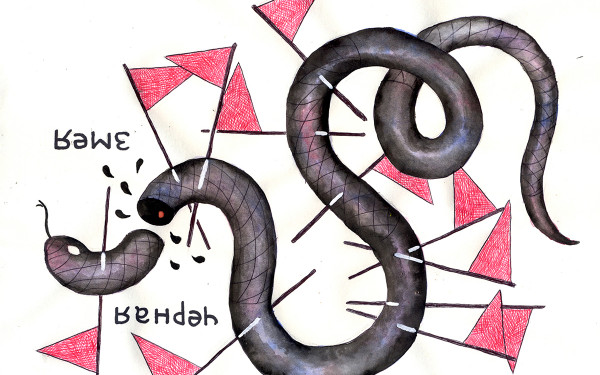One Step Closer to Fossil Fuel Divestment
Concordia Forms Working Group to Continue Discussion on Ethical Investment Policy
Concordia is edging closer to an ethically responsible investment policy, which would include diverting university funds away from the fossil fuel industry.
After over a month of negotiations between members of the university administration and student groups, the decision to set up a working group to create a socially responsible investment policy was announced in an email from Concordia’s VP Development and External Relations Bram Freedman on Nov. 25.
“After a thorough discussion of this issue at the last meeting of the Board of Directors of the Concordia University Foundation, I can tell you there is an openness to further exploring this issue,” Freedman said.
The Joint Responsible Investment Working Group will hold its first meeting in January.
“The goal [of the working group] is to continue dialogue and exploration of the issue,” said university spokesperson Chris Mota. “There is no formal mandate for this joint working group at this point in time.”
The group will include Freedman himself, university treasurer Marc Gauthier, two or three board members of the Concordia Foundation and one student representative each from the Concordia Student Union, the Graduate Students’ Association and the Arts and Science Federation of Associations.
The working group will aim to make sure that Concordia’s investments chime with its official commitment “to responsible environmental stewardship through all of the university’s activities and functions.”
“A socially responsible investment practice uses finance to grow certain forms of the economy that are more beneficial to society,” said Erik Chevrier, who the CSU hired in mid-October as a researcher and negotiator.
Chevrier submitted a preliminary report on Concordia’s investment practices to the CSU on Nov. 25. He will also be joining the working group when it meets at the start of the new year.
He explained that the decision to form a working group was largely thanks to the efforts of Divest Concordia, a student organization formed in November 2012 that has been pushing the university to stop investing in fossil fuels.
The Divest Concordia campaign has also been demanding an investment policy that would serve as a set of ethical guidelines for Concordia’s investments.
“We want to develop a policy for the university that makes sense […] because they need to make a profit from their investments,” said Anthony Garoufalis-Auger of Divest Concordia.
“But at the same time Concordia—with its mission for sustainability—should adopt the same [sustainable practices] for their investments.”
Publicly available financial statements indicate that the university’s endowment fund had $49.9 million invested in Canadian stocks in the 2010-2011 financial year. Of those investments, $9.1 million were in oil and gas, and another $2.6 million were in pipelines. The total value of the university’s endowment fund that year was almost $116 million.
More recent financial documents see the labels for the investment categories changed.
So far, a petition in favour of divestment from fossil fuels has received 1,500 signatures, Garoufalis-Auger said.
Divest Concordia is asking the university to de-fund its investments in fossil fuels within three years, to exclude fossil fuels from future investments and to make a statement about divestment.
Although a socially responsible investment policy would include diverting money away from fossil fuels, it may also apply to investments in other areas.
“We’re going to have to establish a middle ground,” said Caroline Bourbonnière, VP External of the CSU. “I’m mandated to divert from the fossil fuel industry. That doesn’t mean I won’t be interested in divesting from mining industries.”
Bourbonnière said she will consult environmental organizations such as Équiterre and the David Suzuki Foundation before the working group’s first meeting.
The CSU is also calling for faculty representation in the working group. The union already has a professor of social economy in mind, but would like to keep his or her name anonymous for now.
“The university’s response […] demonstrates a good sign of openness on their behalf and a desire to engage with students in a fruitful way,” Bourbonnière wrote in an email to The Link.
“I really do hope we accomplish something tangible by the end of the [next] year.”

_799_1200_90.jpg)
_600_832_s.png)

(WEB)_600_375_90_s_c1.jpg)
_600_375_90_s_c1.jpg)

